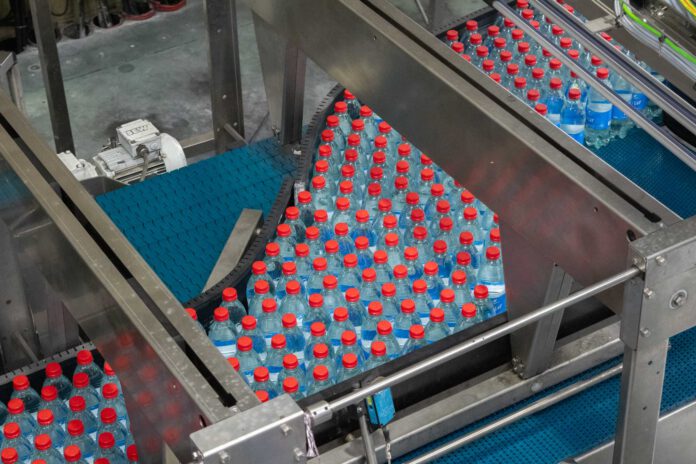Sources Rosport has recently introduced a new line of PET bottles that are entirely manufactured in Luxembourg, 100% recyclable, and now “blown up” in their own production facility in Rosport. This innovation affects the popular mineral water brands Rosport Viva, Classic, and Blue. The idea behind it: “A bottle change for better recycling”. The new bottles have been available nationwide since July.
What has changed? All mineral waters, whether still or carbonated, are now filled into a uniform, transparent bottle made of recycled PET, which is 100% recyclable. With this change, Sources Rosport is not only responding to environmental challenges but also to the European Directive EU 2019/904, which mandates a firmly attached cap for beverage bottles from July 2024. In June, a modern bottle blowing machine was also installed — an investment of 2 million euros — to prepare the new bottles on-site.

Radical Reduction of Transport Routes: What’s Behind It?
The advantage of this new production method is that transport routes can be greatly reduced. Previously, finished PET bottles were brought from the factory in Bascharage to Rosport with about 18 trucks per week. With the more compact bottle preforms that are now blown up in Rosport, only a single truck delivery per week is needed.


The delivered preforms made from recycled plastic are now blown up directly in Rosport and immediately enter the filling cycle.
To give an approximate idea of the savings, I’ve made a simple calculation – it’s certainly not exact due to missing details, but it shows the order of magnitude:
For the round trip, a truck covers 140 km between the two locations, which amounts to about 2,500 km weekly and around 133,500 km annually. This generates about 2,100 kg of CO₂ per week, which corresponds to about 111,300 kg of CO₂ per year.
Now that the bottles are blown up directly in Rosport, the weekly bottle requirement can be met with just one truckload of preforms. This means only 140 km per week or 7,420 km per year. The CO₂ emissions thus decrease to 120 kg per week or 6,400 kg per year – a reduction of CO₂ emissions from transport by about 95%.
However, there is a small downside: The new bottle blowing machine has an enormously high energy consumption, which should not be disregarded in this calculation. Nevertheless, the saved transport routes represent a considerable progress.
Plastic — A Necessary Evil?
Although glass bottles are becoming more popular again — last year they accounted for 51% of sales volume — PET bottles remain indispensable for Rosport at present. Therefore, they decided to make the PET bottle offer as environmentally friendly as possible.
Despite concerns about plastic, PET remains in demand due to its lightness and practicality. Sources Rosport began early to deal with PET recycling. As early as 2014, a partnership was established with Valorlux and Plastipak to ensure that bottles collected in Luxembourg are recycled and used for new bottles.
Sources Rosport also takes a sustainable approach with secondary packaging. The plastic film used for multipacks consists of more than 50% recycled polyethylene and bears the “I’m Eco” label. It is 100% recyclable and can be disposed of through Valorlux systems.


Pictures: Charel Heinen (KACHEN)
